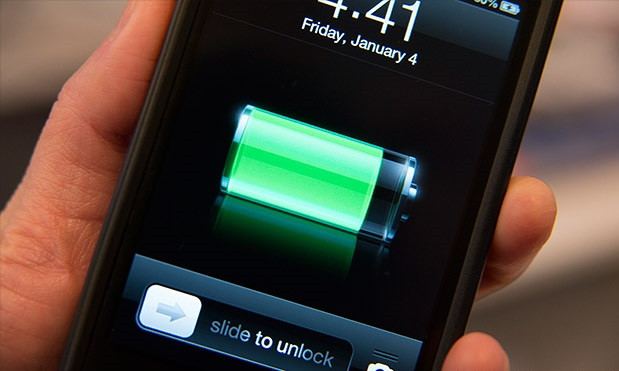Samsung developing new technology to double battery life in smartphones

In what seems to be a major breakthrough in battery technology, Samsung claims that it may have figured out a way to nearly double the battery life of smartphones.
The South Korean major has developed a prototype by adding graphene on top of silicon anodes, according to research quoted in PCPaper and published in the Nature Journal.
In tests, Samsung is said to have built batteries whose densities are 1.8 and 1.5 times greater than that of their current-gen Lithium-Ion counterparts and substantially boost the existing battery life.
"The graphene layers anchored onto the silicon surface accommodate the volume expansion of silicon via a sliding process between adjacent graphene layers. When paired with a commercial lithium cobalt oxide cathode, the silicon carbide-free graphene coating allows the full cell to reach volumetric energy densities of 972 and 700 Wh l<sup>−1 at first and 200th cycle, respectively, 1.8 and 1.5 times higher than those of current commercial lithium-ion batteries," the Nature Journal states.
Along with increasing battery power, Samsung's new technology claims to ensure that batteries will still come with a compact outer form-factor, without leading to an increase in their overall size.
Theoretically, this aspect should be a boon for mobile-phone users, especially the business class who constantly fret over having to frequently plug-in their devices for re-charging.
User complaints about having to choose a phone just to hold a bigger battery in it could also benefit to a great extent once Samsung's silicon-graphene battery technology goes commercial.
The South Korean company is still doing research and performing tests on the new battery technology, and it might take a couple of years for it to be incorporated in smartphones.
The silicon-graphene battery technology would also reduce a smartphone users' dependence on power banks.
Apart from smartphones, Samsung says its new battery technology could also be used in future electric cars, enabling them to be driven for longer distances.
© Copyright IBTimes 2025. All rights reserved.





















